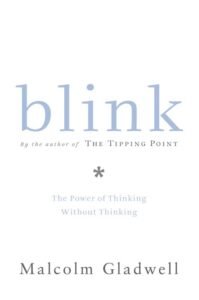|
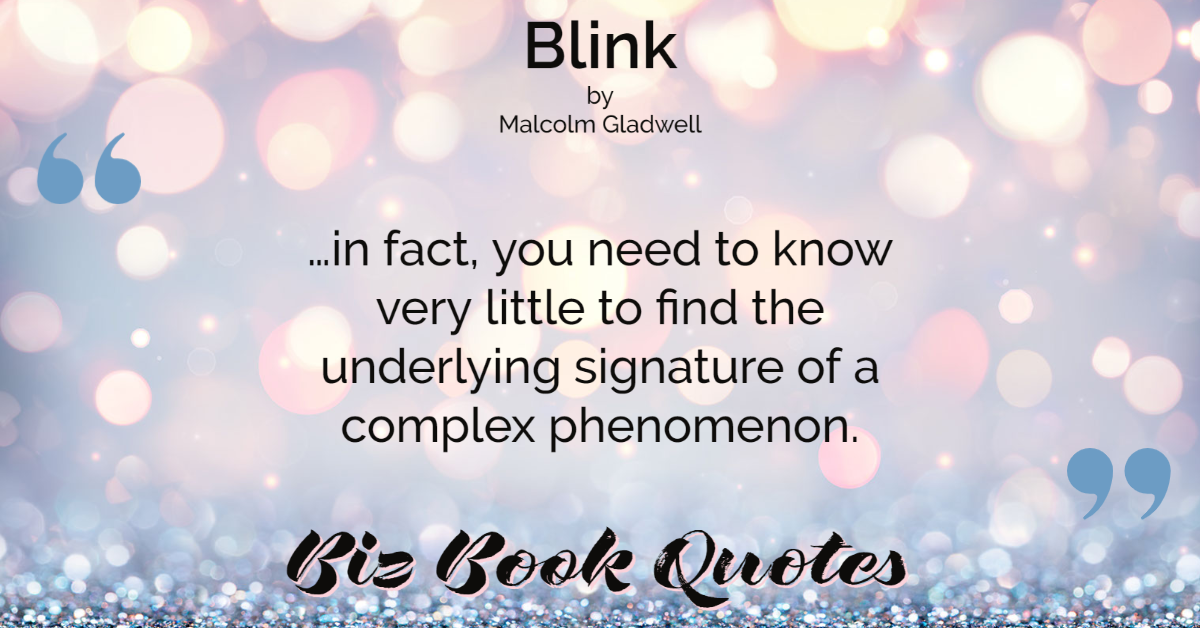
|
Blink:
…in fact, you need to know very little to find the underlying signature of a complex phenomenon.
|
136 |
|
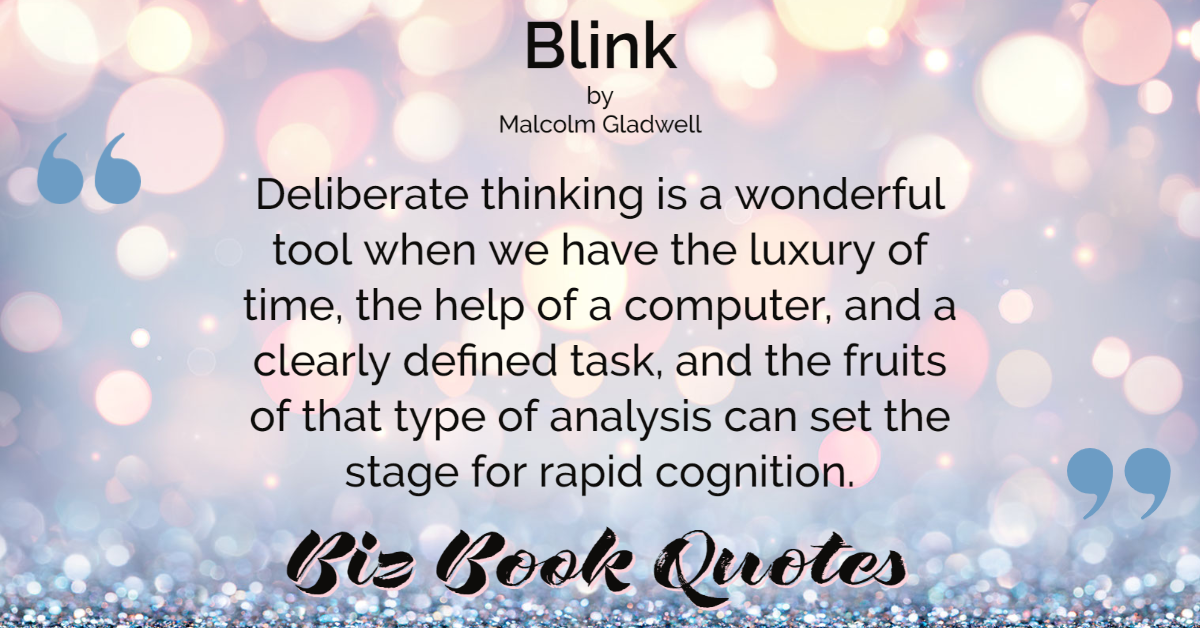
|
Blink:
Deliberate thinking is a wonderful tool when we have the luxury of time, the help of a computer, and a clearly defined task, and the fruits of that type of analysis can set the stage for rapid cognition.
|
141 |
|
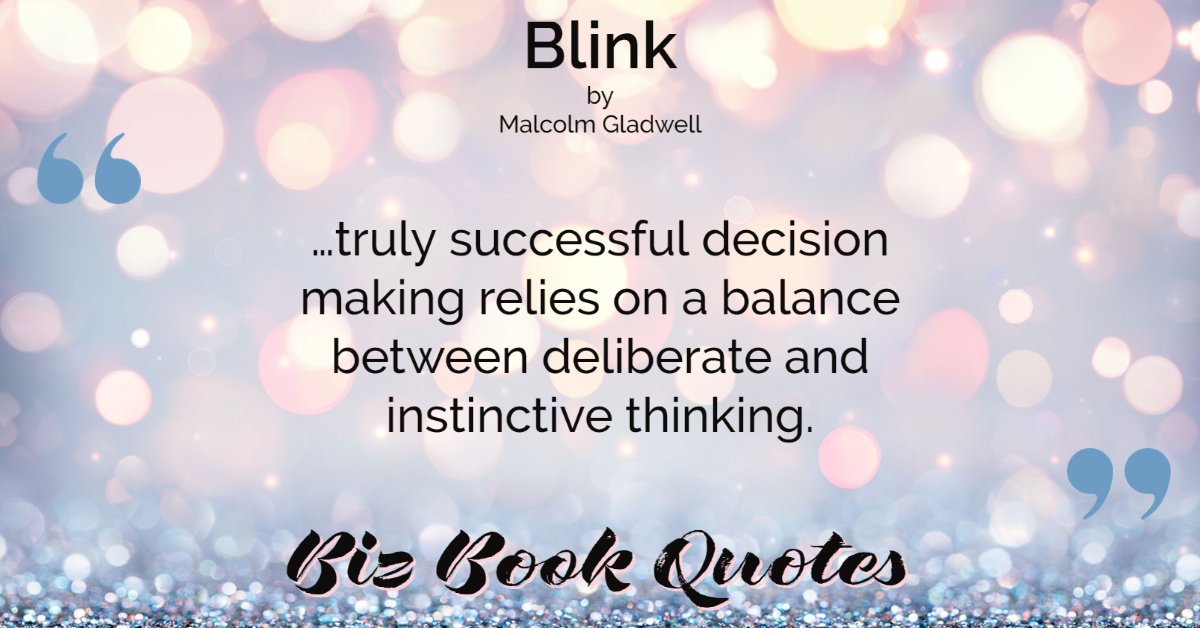
|
Blink:
…truly successful decision making relies on a balance between deliberate and instinctive thinking.
|
141 |
|
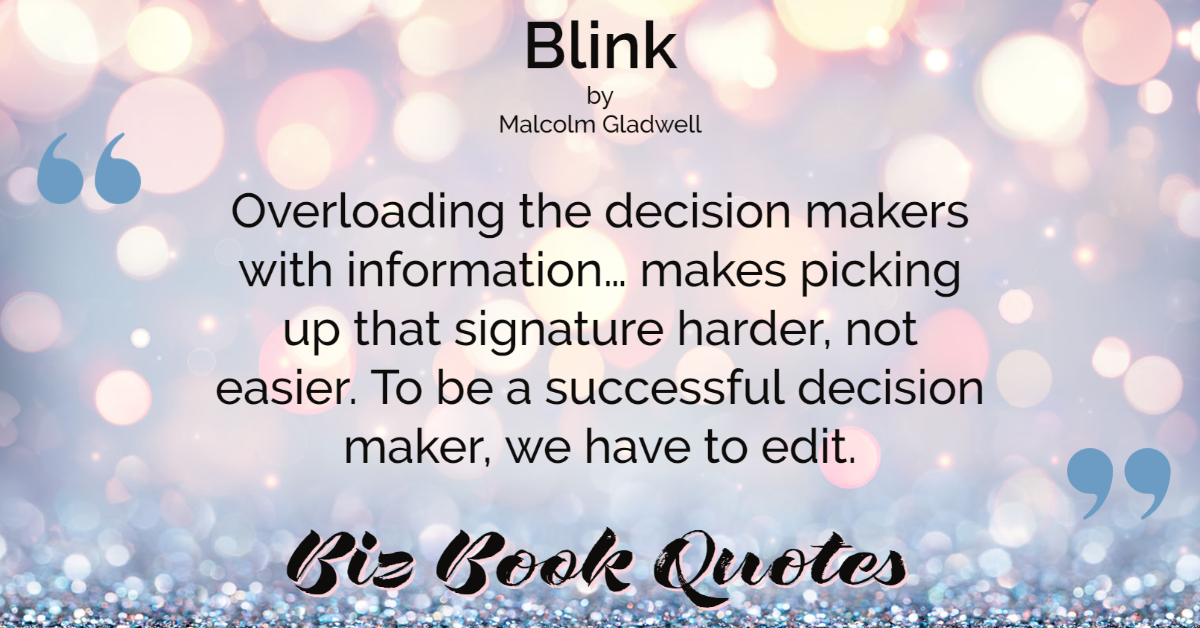
|
Blink:
Overloading the decision makers with information… makes picking up that signature harder, not easier. To be a successful decision maker, we have to edit.
|
142 |
|
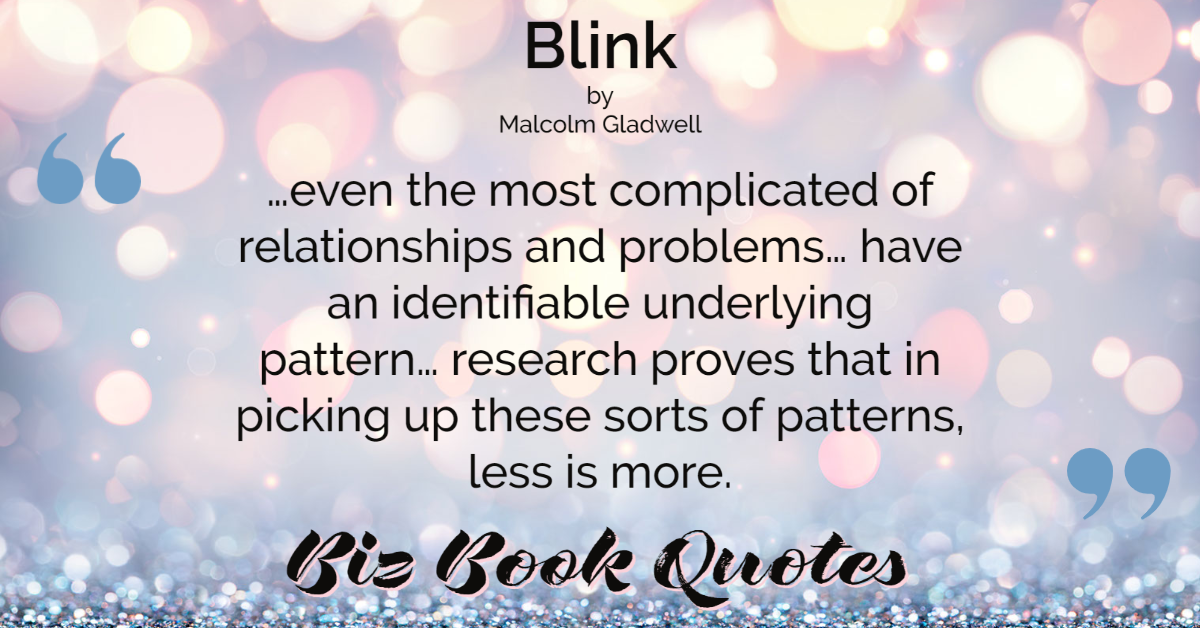
|
Blink:
…even the most complicated of relationships and problems… have an identifiable underlying pattern… research proves that in picking up these sorts of patterns, less is more.
|
142 |
|
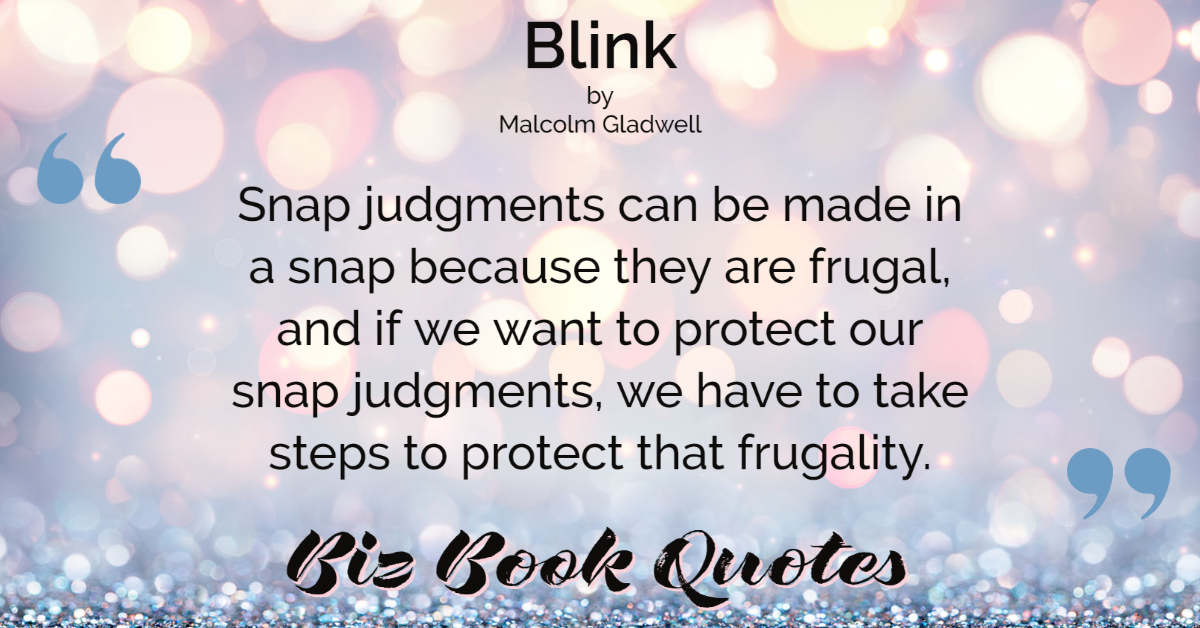
|
Blink:
Snap judgments can be made in a snap because they are frugal, and if we want to protect our snap judgments, we have to take steps to protect that frugality.
|
143 |
|
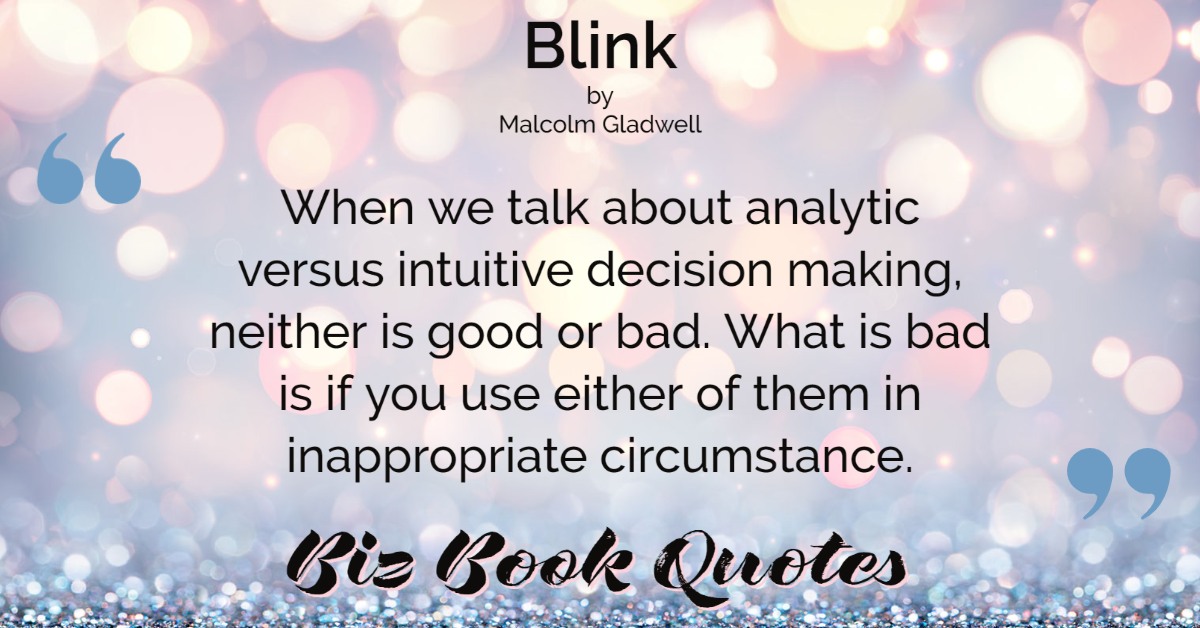
|
Blink:
When we talk about analytic versus intuitive decision making, neither is good or bad. What is bad is if you use either of them in inappropriate circumstance.
|
143 |
|
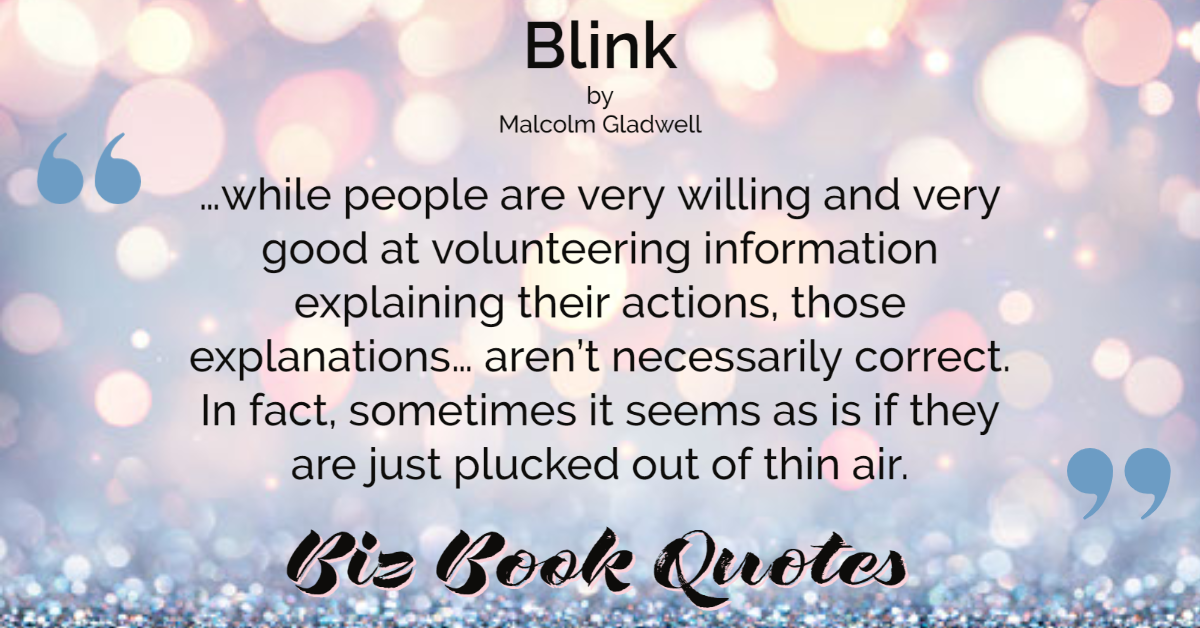
|
Blink:
…while people are very willing and very good at volunteering information explaining their actions, those explanations… aren’t necessarily correct. In fact, sometimes it seems as is if they are just plucked out of thin air.
|
155 |
|
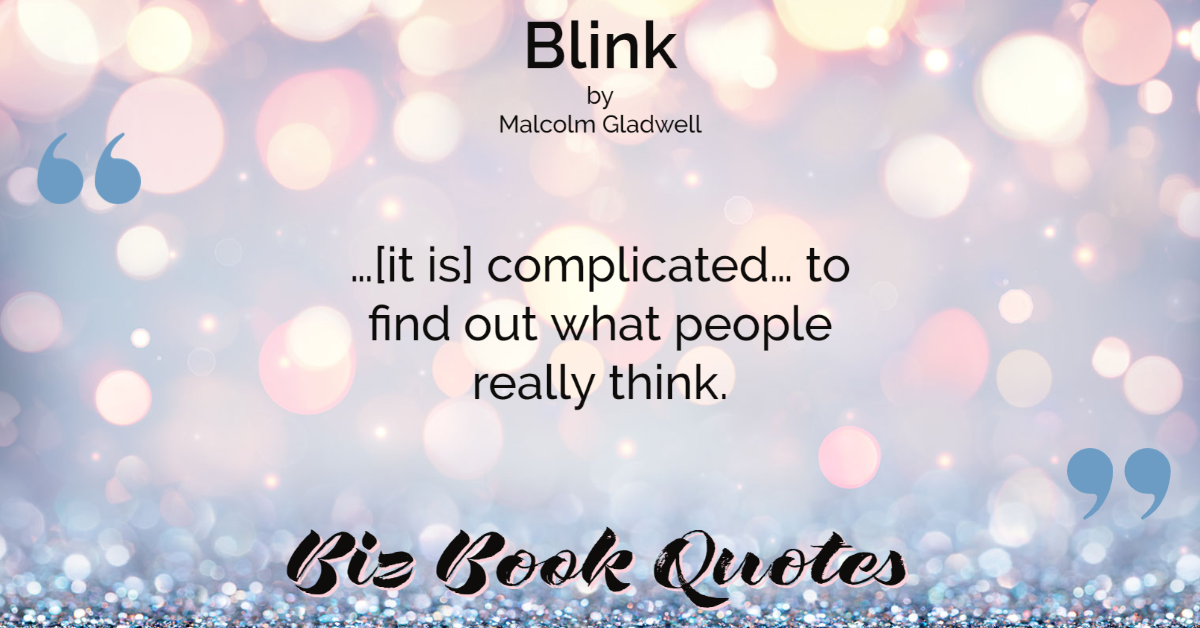
|
Blink:
…[it is] complicated… to find out what people really think.
|
158 |
|

|
Blink:
…products [we hate] are in that category only because they are weird. They make us nervous. They are sufficiently different that it takes us some time to understand that we actually like them.
|
173 |
